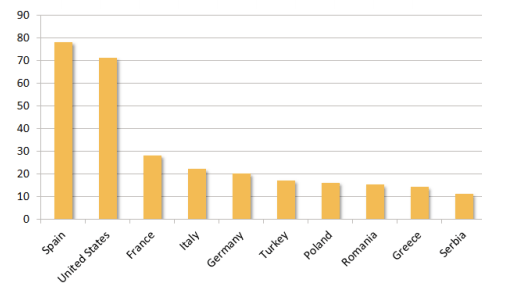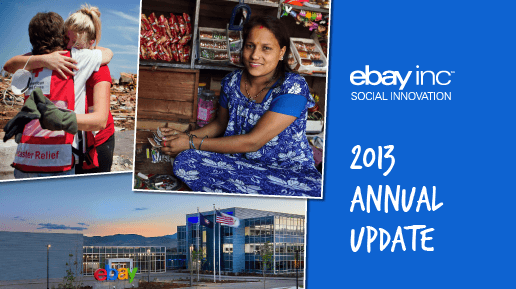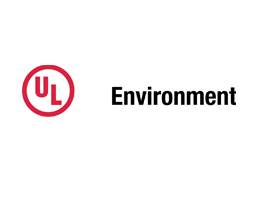Ikea Bumps Up Minimum Wage for U.S. Workers


Congress might be deadlocked over the minimum wage debate, but some companies aren't waiting. Ikea recently announced it will raise the average minimum wage in its U.S. stores to $10.76, a 17 percent increase over the current wage and $3.51 above the current federal minimum wage.
The furniture company says the increase will impact around half of its U.S. retail workforce. Notably, hourly wages will vary based on the cost of living in each store location -- a departure from determining wages based on the local competitive situation -- and are centered on employee needs. The wage increase is based on the MIT Living Wage Calculator, which takes into consideration housing, food, medical and transportation costs plus annual taxes.
All 38 existing U.S. retail locations, as well as Ikea’s three new locations set to open before the end of 2015, will adopt the new structure. All non-retail locations in the U.S. – including five distribution centers, two service centers and a manufacturing facility – have hourly wage jobs that are already paying minimum wages above the local living wage.
Ikea says the transition to the new minimum hourly wage structure is not only the right thing to do, but also makes good business sense. The company is betting that focusing on employee satisfaction will allow it to better serve customers and contribute to overall business success.
The wage increase is the latest in a series of investments that Ikea has made in its workers. In the past year, the company has introduced the TACK! loyalty program, which makes contributions to a new retirement fund, and increased the employer-matched contributions to worker 401(k) plans, as well as launched the new One Ikea Bonus program for all employees.
Ikea also has its sights set on improving its supply chain and helping those in the developing world. This week, Ikea Foundation and Save the Children announced plans to expand a child rights program aimed at protecting children living in cotton communities in India. The initiative has helped to protect more than 600,000 children to date, and the $9.4 million expansion will extend the program’s reach to keep an additional 790,000 children out of cotton fields.
It is yet to be seen if other large U.S. retailers such as Walmart will follow Ikea's lead.
Based in San Francisco, Mike Hower is a writer, thinker and strategic communicator that revels in driving the conversation at the intersection of sustainability, social entrepreneurship, tech, politics and law. He has cultivated diverse experience working for the United States Congress in Washington, D.C., helping Silicon Valley startups with strategic communications and teaching in South America. Connect with him on LinkedIn or follow him on Twitter (@mikehower)
Arborwall Brings Energy Efficient Log Cabins to the Custom-Built Home Market


Log cabins were widely used in Europe, and the concept quickly spread when immigrants arrived on American soil. Settlers had an abundance of lumber and mud, along with basic tools: the ax, auger and adz. This quick and simple building technique spread westward and is now an enduring symbol of American history. Even Abraham Lincoln was born in a log cabin.
Unfortunately, log cabins are also symbolic of widespread logging and loss of pristine virgin forests. Many log cabins are not energy efficient, and few comply with most building code energy standards. Based in northern Maine, Arborwall is demonstrating that log cabins are more than rustic backwoods dwellings.
Energy efficiency
Arborwall's innovative log homes are constructed with Northern white cedar, which has the highest insulative value of any tree species. The interconnected, stacked timbers are lined with rigid panel insulation, avoiding thermal bridges that draw heat out of the home with a continuous sheet of insulation. Thermal bridges typically occur when materials with low R-values (insulative property) relative to surrounding materials span from the interior to the exterior of a building, thus creating a path for heat to exit a home.
Sustainably-harvested wood
The Northern white cedar is sustainably-harvested in Maine by parent company Katahdin Forest Products and the company states that, "Arborwall is the only home manufacturing company that can provide Forest Stewardship Council certified cedar." Because Maine has an abundance of Northern white cedar, it is ideally suited for responsibly harvesting the timber. In addition, Northern white cedar has qualities that naturally repel insects and protect against rot and mold. This eliminates the need to treat the wood, thus reducing volatile organic compounds. Beyond natural, energy-efficient homes, the company itself has implemented numerous sustainability initiatives.
No-waste philosophy
"My grandfather started the company in 1973 and he had a no-waste philosophy," says Gabriel Gordon, managing director of Arborwall Solid Cedar Homes. "He knew if he was buying a raw material and building homes with it, he would have a lot of waste and he needed something else to do with that waste."
This no-waste philosophy continues to this day, making company operations more sustainable, says Gordon. "The largest part of the tree will make a log or a solid cedar timber for the homes. Tops of all the trees go into fencing. We are the largest cedar fence manufacturer in the Eastern United States. If it can’t be a log used in home or in a fence product, it goes to Cedar Ideas for garden products or CedarWorks to make playsets."
Renewable energy
This no-waste philosophy inspired the company to install a biomass boiler in 2007. Instead of trucking away thousands of tons of waste sawdust and shavings -- and spending $400,000 annual in heating costs -- the biomass boiler now provides 90 percent of the company's fuel oil consumption and repurposes 5,500 tons of sawdust annually. The mill also produces ethanol from potato scraps from local farms, thus providing renewable fuel for mill vehicles.
"We hope to add some automation in the process in the next three to six months that will allow us to produce 100 gallons [of ethanol] a day," says Gordon. "We will then be able to replace a majority of our gasoline usage for our mill vehicles. We're trying to be as energy independent as possible."
Image credit: Arborwall
Sarah Lozanova is a regular contributor to environmental and energy publications and websites, including Mother Earth Living, Green Building & Design, Triple Pundit, Urban Farm, and Solar Today. Her experience includes work with small-scale solar energy installations and utility-scale wind farms. She earned an MBA in sustainable management from the Presidio Graduate School and she resides in Belfast Cohousing & Ecovillage in Midcoast Maine with her husband and two children.
Nestlé Reduces U.S. Waste By 44 Percent Since 2010


Next time you grab a Crunch bar, you can feel slightly less guilty, at least about the environmental impact. Nestlé has reduced 44 percent of waste per ton of product since 2010 in the U.S., and five factory locations reached zero-waste-to-landfill status by the end of 2013, according to the company’s recent sustainability report.
The Creating Shared Value (CSV) report is the company’s first expanded effort to highlight U.S.-specific milestones and achievements tied to Nestlé’s global sustainability principles and commitments. The report documents Nestlé’s nutritional, social and environmental progress from the past year, as well as provides updates on the company’s U.S. progress toward Nestlé’s global commitments.
Other notable environmental impact updates include saving more than 3.3 billion pounds of plastic since 2003 by reducing the plastic content of its PET half-liter water bottles by 60 percent. Nestlé is already is on its way to achieving zero waste in Europe by 2020.
In the supply chain, last year Nestlé achieved its goal of sourcing 100 percent Roundtable on Sustainable Palm Oil (RSPO) certified palm oil. The company also implemented Responsible Sourcing Guidelines for seafood that align with its global Responsible Sourcing Guidelines, working with experts to track suppliers and contribute to healthier ecosystems. In 2013, Nestlé also committed to sourcing 100 percent certified cocoa beans for its Crunch Bars.
To address growing health concerns in the U.S., Nestlé introduced new portion guidance tools and launched an educational campaign, Balance Your Plate, to help consumers build nutritious and convenient meals that meet the Dietary Guidelines for Americans. The company also reduced sodium in many of its most popular brands, such as Stouffer’s and DiGiorno, and committed to further reduce sodium content by 10 percent in products that do not meet the Nestlé Nutritional Foundation criteria by the end of 2016.
Ninety-six percent of Nestlé’s children’s products now meet the Nestlé Nutritional Foundation’s criteria for lower sugar, and by the end of 2014, 100 percent of children’s products will meet these criteria, the company says. Nestlé also committed to reaching zero food and beverage products with trans-fat originating from partially hydrogenated oils (PHOs) used as functional ingredients by 2016.
Image credit: Nestlé
Based in San Francisco, Mike Hower is a writer, thinker and strategic communicator that revels in driving the conversation at the intersection of sustainability, social entrepreneurship, tech, politics and law. He has cultivated diverse experience working for the United States Congress in Washington, D.C., helping Silicon Valley startups with strategic communications and teaching in South America. Connect with him on LinkedIn or follow him on Twitter (@mikehower)
Banks turn corner on public trust, says new survey


After years of reputational issues and costly scandals, banks are finally winning back the public's trust, according to new research from uSwitch.com.
The 2014 uSwitch Current Account Awards, based on votes from over 10,000 customers, reveals almost three quarters (72%) now trust their current account provider.
First Direct is the best bank in the eyes of consumers, coming top in eight of nine categories while Co-op Bank, after a troubled year, holds third position in categories including 'Best Current Account Provider' and 'Most Trusted'.
With consumers beginning to demand more from their banks, larger players such as RBS will also need to up their game, maintains uSwitch.com, as it was voted the worst current account provider overall, coming last in all categories but one. Other members of the big four - notably Lloyds and HSBC - also performed badly, failing to secure a top-three position in any of the categories, it points out.
David Mann, Head of Money at uSwitch.com, commented: “Where you keep your hard earned-cash should be as important as how much you earn in the first place - so it's great to see a healthy level of trust between banks and their customers. However, it's crucial that banks and building societies keep strengthening the relationship they have with their customers by offering them innovative products and services.
“Competition in the current account market is hotter than ever and banks can't afford to take their foot off the pedal. Already this year we have seen high profile brands such as M&S and Tesco launch current accounts specifically designed to steal customers off the high street. With the likes of Virgin Money and Atom Bank also expected to launch in the next 12 months, it's clear that the Big Four are no longer holding all the cards.”
Picture credit: © Mike2focus | Dreamstime.com
7 Companies Embracing Independence With Employee Ownership


For a special holiday edition of 3p Weekend, this week we're focusing on companies that embody the spirit of July Fourth by formalizing their employees' independence.
Once a niche phenomenon, the number of worker-owned businesses is growing by about 6 percent per year in the U.S. The number of employee-owned companies grew from 1,600 in 1975 to around 11,000 in 2013, accounting for 12 percent of the private-sector workforce.
Sometimes criticized as "not quite capitalism," Employee Stock Ownership Plans (ESOPs) are picking up steam as a way to center companies around worker collaboration, rather than the pressure of external stakeholders. So, as we light up our fireworks and let our flags fly, we salute these seven companies that took a chance on independence -- and reaped the rewards.
1. Publix Supermarkets
Florida-based grocer Publix is the largest employee-owned firm in America, employing 160,000 people that collectively hold an 80 percent stake in the company. Proving that employee ownership isn't reserved for niche markets, Publix is also the seventh largest private firm in the U.S. with $27.5 billion in sales.
2. Recology
Fun fact: The waste management provider responsible for San Francisco's 80 percent recycling rate is also 100 percent employee-owned.
"Founded in 1986, the Recology ESOP is intended to fuel our drive toward excellent service, customer satisfaction, efficiency and innovation," Recology says on its website. "It is a major reason why Recology is consistently able to attract and retain the industry's best people at every level of the company."
3. Hy-Vee
Hy-Vee operates more than 230 retail stores across the Midwest, including Illinois, Iowa, Kansas, Minnesota, Missouri, Nebraska, South Dakota and Wisconsin. With sales of more than $8 billion, Hy-Vee ranks among the top 25 supermarket chains and the top 50 private companies in the United States. It is also more than 50 percent owned by its 69,000 employees.
4. Round Table Pizza
Round Table Pizza, which operates around 450 locations across California, Nevada, Oregon, Washington and Hawaii, has a unique employee ownership story. After filing for bankruptcy in 2011, the company emerged from Chapter 11 in only 10 months, repaying all of its creditors and preserving equity -- largely due to its 100 percent employee-owned business model. In 2011, the company successfully renegotiated leases, closed 22 unprofitable stores, and improved profitability in its base business. Three years later, it's still going strong.
"This reorganization was made possible by the strength of our franchisees and the commitment of our employees," CEO Rob McCourt said in a 2011 press release. "Their collective efforts significantly improved our operating cash flow and overall business results."
5. The Cheese Board Collective
The Cheese Board Collective opened as a small cheese store in Berkeley, California in 1967. In 1971, the two original owners sold their business to their employees and created a 100 percent worker-owned business, and it has stayed that way ever since.
"The belief that every voice is central has sustained us over the years," the company says on its website. "We have never wavered from the original vision of a democratic workplace. This commitment has made it possible to constantly reinvent ourselves, while remaining faithful to our political vision, and our belief in good, honest food."
6. Bob's Red Mill
You may know Bob's Red Mill as makers of artisanal flours and whole grains. Its current site located in Milwaukie, Oregon is a 320,000-square-foot facility covering some 17 acres and produces thousands of products each day. For owner and founder Bob Moore's 81st birthday, rather than receiving gifts, he decided to give his greatest gift away — his business. He surprised all of his employees by giving them total ownership of Bob's Red Mill through an ESOP.
As he put it in a statement on the company's website: "It was just the right thing to do. I have people that have worked with me for over 30 years and each and every one of them deserve this."
7. New Belgium Brewing
From offering exemplary bike-to-work incentives to giving struggling downtowns an economic boost, we've tipped our hats to New Belgium Brewing a few times already in our 3p Weekend posts. But we're more than happy to give the company a shout-out again today, as it's one of the only employee-owned breweries in the U.S.
The company operated an ESOP for several years, with employees owning a 41 percent stake as of 2012 and CEO and co-founder Kim Jordan retaining the majority share. But in 2013, Jordan sold off her remaining stake to the ESOP -- making the brewery 100 percent employee-owned.
“There are few times in life where you get to make choices that will have multi-generational impact – this is one of those times,” Jordan said in a 2013 press release. “We have always had a high involvement ownership culture and this allows us to take that to the next logical level." She intends to stay onboard as CEO, and you'd be hard-pressed to find any negative impacts of her decision. The brewery will expand to the East Coast this year — with the construction of a $175 million facility in downtown Ashville, N.C.
Image credit: Aaron Burden/Unsplash
'Dragonfly' Malware Highlights Vulnerability of Energy Infrastructure


With an explosion in the number of “smart” Internet-connected devices, it seems hardly a week goes by when we're not reminded of the vulnerability of individuals, organizations and even entire societies to malware, online spying and cyber attacks.
In a whitepaper released June 30, Symantec Security Response reports on an ongoing, sophisticated, very possibly state-sponsored “cyber espionage campaign dubbed Dragonfly (aka Energetic Bear)” that managed to infiltrate information systems of “energy grid operators, major electricity generation firms, petroleum pipeline operators and energy industry industrial control system (ICS) equipment manufacturers.”
The majority of the victims were located in the U.S., Spain, France, Italy, Germany, Turkey and Poland, according to a post on Symantec's Managed Security Services Blog. As CNNMoney journalist Jose Pagliery noted in a July 2 news report, it seems the Cold War didn't end with the 1989 fall of the Berlin Wall, it just moved into cyber space.
Cyber espionage in the energy industry
The Dragonfly cyber espionage campaign is believed to have been active since at least 2011, targeting defense and aviation companies in the U.S. and Canada first. But it showed up on Internet and IT security companies' radar screens in early 2013, when it shifted its focus to U.S. and European energy firms.
The Dragonfly group makes use of bespoke malware and a variety of online infiltration tools and methods. Dragonfly attacks were carried out in three phases, Symantec elaborates:
- Sending malware in phishing emails to personnel in target firms;
- Watering-hole attacks in which websites commonly visited by those in the energy industry were compromised with an exploit kit; and finally,
- The “Trojanizing of legitimate software bundles belonging to three different ICS equipment manufacturers.”
Fortunately, Dragonfly hasn't brought down electricity grids or oil or natural gas pipelines, though it clearly holds the potential to do so. In contrast to the notorious Stuxnet, which was used to sabotage Iran's nuclear power program, Dragonfly's primary focus appears to be cyber espionage, according to Symantec.
The Cold War moves online
Furthermore, the sophistication and resources required to carry out Dragonfly suggests it is a state-sponsored operation. Time stamps indicate that it originated somewhere in Eastern Europe. As Symantec MSS Global Threat Response explains in its blog post:
“Dragonfly bears the hallmarks of a state-sponsored operation, displaying a high degree of technical capability. The group is well resourced, with a range of malware tools at its disposal and is capable of launching attacks through multiple attack vectors while compromising numerous third party websites in the process. Its main motive appears to be cyber espionage, with potential for sabotage a definite secondary capability.”
Internet connectivity is expanding fast and far beyond PCs, mobile communications devices, TVs and vehicles to include all manner of equipment and products, from wearable electronics and household appliances to smart electricity, water and gas meters, manufacturing and industrial control systems.
Global shipments of connected devices surpassed 1 billion in 2013 and are expected to approach 1.8 billion this year, according to a forecast from IDC.
With each of these devices a potential access point for cyber spies, terrorists and criminals, the onus is on individual users, as well as IT professionals and Internet security specialists, to carry out protective measures, including using Internet security software, diligently following secure-use practices and staying abreast of new potential threats.
*Image credits: 1) Fuel Fix; 2) Symantec
eBay Delivers on 2013 Social Innovation Goals


eBay Inc. is proving to be a company that delivers on its promises. With more than 33,000 employees worldwide, the e-commerce giant isn’t naïve about its two-decade span of influence on both society and the global economy. In its very first Social Innovation annual update, eBay Inc. successfully demonstrated its commitment following a series of goals set last June to fuel shareholder value and pursue a three-year, long-term series of objectives to create positive societal and environmental change.
“We’ve long believed in eBay Inc.’s capacity to drive both shareholder value and positive social and environmental change—it’s not just off to the side, it’s built into what we do every day,” said Lauren Moore, head of Global Social Innovation for eBay Inc. “Our Social Innovation efforts formalize this sense of purpose that’s been here from the start and provide a framework to understand our impact. And as shareholder value is increasingly measured in more ways than just purely financial gain, we believe our Social Innovation efforts will continue to position us for sustainable growth over the short and long term.”
eBay Inc.’s annual update is guided by three key focus areas -- creating economic opportunity, enabling greener commerce and powering charitable giving -- and demonstratively connects each to the crux of its business goals.
Creating economic opportunity
The past year has been marked by eBay Inc.’s efforts to better unlock business activities that foster an inclusive economy, empower entrepreneurs, enable the growth of small and mid-sized businesses and facilitate global growth opportunities. In 2013 alone, eBay Inc. reported $205 billion in commerce volume, representing 18 percent of global e-commerce and 2 percent of global retail. By 2015, the company plans to grow this figure to $300 billion. Through collaborative partnerships with nonprofits and the development of business accelerators, eBay Inc. successfully provided funding for early-stage entrepreneurs resulting in the impact of 52,000 micro-entrepreneurs and 2.2 million individuals, according to the update.
Enabling greener commerce
eBay Inc.’s commitment to curb emissions and make its platform greener is marked by the momentum of more than doubling its on-site generation of cleaner energy. According to the update, eBay Inc. sourced 7.5 percent of its energy from cleaner sources in 2013. This included a new fuel cell installation for its Utah data center and purchasing 100 percent renewable power for its Utah customer service center, as well as its offices in Berlin and Dreilinden, Germany and Dublin, Ireland.
The company has also encouraged environmental responsibility by lowering the impact of its shipping operations, promoting the use of sustainable packaging materials and optimizing modes of transportation within its shipping networks.
Another significant outcome of eBay Inc.'s Social Innovation efforts last year was the creation of its first company-wide Supplier Code of Business Conduct and Ethics, which requires suppliers to adhere to conduct that includes integrity in environmental, labor and human rights regulations.
Powering charitable giving
Last year, the company put forth aggressive efforts to increase the number of donors to take action, increase charitable funds and scale resources to support causes around the world. As a result, $4.9 billion was generated for charitable organizations through a variety of its giving programs and platforms in 2013 — a 32.4 percent increase over 2012.
Internally, eBay Inc’s goals are becoming intrinsic to the nature of its corporate culture. According to the report, 7,855 employees were engaged in at least one of the company's social innovation programs. Employees were engaged in a variety of skills-based volunteer activities in addition to providing critical community needs such as tree planting, park cleanups and building homes for families in need.
“While I’m excited by our progress to date, I’m most proud of our approach—using our unique business model to make meaningful, lasting progress in areas and in ways that make sense given our specific resources and focus as a company. I’m beginning to see more companies start to move in this direction and I hope we can be an inspiration for even more to do the same,” says Moore.
Moving forward, eBay Inc. promises that it will not rest on its laurels. Specifically, as the "collaborative” or “sharing” economy movement picks up speed and reach, eBay Inc. is seeking to leverage technology to enable peer-to-peer commerce. Ultimately, the company hopes to scale a secure global marketplace and work with government to partner around new business models that bring social and environmental benefit. As eBay Inc. advances these pursuits, it plans to share best practices with the larger business community.
Learn more about eBay Inc’s approach to social innovation and their successes in 2013 by downloading its annual update here.
Image courtesy eBay, Inc.
Bribery and corruption still rife, finds EY global survey


EY’s 13th Global Fraud Survey, Overcoming compliance fatigue: reinforcing the commitment to ethical growth, has found concerning levels of perceived fraud, bribery and corruption across the world.
The survey included in-depth interviews with more than 2,700 executives across 59 countries, including chief financial officers, chief compliance officers, general counsel and heads of internal audit. Nearly 40% of all respondents believe that bribery and corruption are widespread in their country.
With respondents portraying a business environment of pervasive corruption in many countries, it would appear that management and boards are struggling to respond to long-standing threats, let alone addressing emerging risks such as cybercrime.
David Stulb, Global Leader of EY’s Fraud Investigation & Dispute Services (FIDS) practice says, “With high-profile cybercrime incidents making headlines on a regular basis, boards should expect management to have a robust incident response strategy in place. Pressure on companies for timely disclosure of breaches is rising in many jurisdictions as well, so these issues require attention from the legal and compliance functions. The U.S. Securities and Exchange Commission is increasingly focused on cyber risks as they relate to the integrity of financial statements too, so audit committee members have to be alert to today’s cyber threat environment.”
The survey found that executives are less likely than their teams to attend anti-bribery/anti-corruption (ABAC) training (38%) or participate in an ABAC risk assessment (30%). EY describes this as ‘alarming’, given that these executives are apparently exposed to circumstances which threaten their integrity on a regular basis. Twenty-one percent of CEOs said that they had been approached to pay a bribe in the past, compared with 10% of all C-suite interviewees.
You can access the entire report here.
Picture credit: © Jyothi | Dreamstime Stock Photos
Transparency and Certification: The Yin and Yang of Sustainability


Tastes great. Less filling. Tastes great. Less filling. Like the beer advertising campaign that ran for more than 30 years, manufacturers of greener products are debating whether customers want them to “label the greener products” or “share the eco-data.”
Label the greener products
Some manufacturers believe that their customers want a respected third-party label to identify the greener products. The label identifies the product as “greener” than others because it has specific environmental features or because it meets an environmental leadership standard.
Manufacturers are working with independent third-parties to validate specific environmental claims such as minimum recycled-content percentages, energy efficiency or water efficiency claims, indoor air quality emissions or bio-based content claims.
They are also using labels to make broader environmental or human health leadership claims by certifying products to environmental leadership standards like UL’s GREENGUARD and ECOLOGO, Green Seal, IEEE1680, or others.
The advantage of the “label the greener products” approach is that it is a simple, effective way to communicate a customer-facing environmental message. It does not require customers to spend time determining for themselves what defines a greener product. All a customer needs to do is look for products with a respected “green” label.
Share the eco data
Other manufacturers believe their customers want more information than a product label can convey. They believe customers want to decide for themselves what defines a greener product rather than relying on someone else’s definition. They prefer to share actual eco-data rather than relying on a label.
These manufacturers view sharing the eco-data as a more dynamic approach because eco-data can be updated faster than environmental labelling standards can be revised. Rather than relying on standards or labels, they think customers prefer to see the raw data.
Manufacturers who prefer to share the eco-data rely on outside third-parties to develop environmental product declarations (EPDs), which are similar to the nutrition label on a box of cereal. An EPD summarizes the full environmental footprint of a product based on a published lifecycle assessment (LCA). The LCA is, in turn, based on internationally agreed upon product category rules (PCRs) that define what aspects of an environmental footprint must be evaluated.
Unlike most environmental labels, EPDs do not make any value judgment about the relative “green-ness” of a product. An EPD instead provides relevant environmental data based on a more extensive examination of the complete environmental footprint of a product. It is up to individual customers to determine whether the product, based on the EPD data, is green enough for their needs.
Leverage the strength of both
Interestingly, the “label the greener products” and the “share the eco-data” approaches are not mutually exclusive. Some companies, like Owens Corning, are recognizing that the two approaches are complementary and even symbiotic. Owens Corning is adopting a “both-and” approach that includes certifying products to environmental leadership standards like UL’s GREENGUARD and ECOLOGO while also publishing Environmental Product Declarations (EPDs).
Part of the rationale for adopting both approaches is that each approach is appealing to different types of customers.
Environmental labels, including both validated claims and certifications to leadership standards, are appealing to customers who seek quick information about the relative environmental benefits of a product. They might be concerned about a specific environmental issue – recycled content, energy efficiency, water efficiency – or they might just be looking for independent, third-party validation that the product they are buying has met a respected authority’s definition of a greener product.
Other types of customers, including professional purchasers, retail buyers, architects and engineers, might want more specific information. They don’t want to know that a product meets someone else’s definition of green. They want to review the data and decide for themselves.
The yin and the yang
Manufactures supplying the greener products market are recognizing that both approaches are important. Others are too. They are recognizing that “label the greener products” and “share the eco-data” are two sides of the same coin, the yin and yang of environmental communications.
One of the most significant changes to Version 4 of the U.S. Green Building Council’s LEED standard for greener buildings, for example, is the additional credits available for products that provide EPDs. Older versions of the LEED standard relied almost exclusively on environmental labels. The newer version also encourages EPDs.
The most recent revisions to the IEEE1680 series of standards for greener electronic products also encourage the use of EPDs. It appears EPDs will become more and more important in some industry verticals.
EPDs remain too complex for the average consumer who typically lacks the expertise to use an EPD appropriately, but can be very useful for institutional purchasers and retail buyers. Similarly, traditional environmental labels do not provide enough information for professional purchasers who want to make their own independent assessments about the environmental benefits of a product, but can be very useful for the average consumer.
The information contained within an EPD can be further summarized in an environmental label to make it easier to explain environmental benefits to consumers. And an environmental label can enhance the value of the information if it is connected to a more comprehensive EPD.
Both approaches are stronger together than they are on their own.
Just as the same beer can be both “less filling” and “taste great,” manufacturers can choose to both “label the greener products” and “share the eco-data.”
Images courtesy of UL Environment
About the Author: Scot Case has been researching and promoting effective green marketing and responsible purchasing since 1993 and was co-author of the original “Sins of Greenwashing” study and advisor to subsequent editions. He is the Market Development Director for UL Environment. Contact him via Twitter: @scotcase, email: [email protected] or in Reading, PA, at 610-781-1684. This article represents the views of the author only and do not necessarily reflect the views of UL Environment or its affiliates or subsidiaries. This article is for general information purposes only and is not meant to convey legal or other professional advice.
Scientists Call for Holistic Tropical Coastal Zone Management


More than 1.3 billion people worldwide – most in developing countries – depend largely on coastal marine zones them for food and livelihoods. These zones face declining health and productivity from pollution, overfishing and a myriad of other issues.
New regional-scale, science-driven approaches to governance of coastal marine zones need to be implemented in order to address the declining health and productivity of tropical coastal waters, according to a group of leading environmental and marine scientists.
Writing in the Marine Pollution Bulletin, 24 scientists from Canada, the U.S., the U.K., China, Australia, New Caledonia, Sweden and Kenya on July 2 called on governments and societies “to introduce and enforce use zoning efforts of Earth's coastal ocean waters, mirroring approaches commonly used to manage and protect land resources.”
“[O]ne fifth of humanity -- mostly in developing countries -- lives within 100 km (62.5 miles) of a tropical coastline. Growing populations and worsening climate change impacts ensure that pressures on tropical coastal waters will only grow,” they warn.
Managing the tropical coastal zone commons
A global commons, the ecological health and integrity of tropical coastal ocean waters often take a backseat to the demands societies place on them – from fisheries, aquaculture, shipping and tourism to oil, gas, mineral and energy exploration and production. Connected to the seas by streams and rivers, urban life, agriculture and industrial activities that take place far from the coasts are having a greater impact on the health and vitality of tropical coastal waters.
The tropical ocean ecosystem doesn't recognize national boundaries, yet human use of these waters has largely been governed by a hodgepodge of local and national institutional frameworks and agencies lacking the resources, capacity and wherewithal to carry out their missions.
According to the authors, attempts at sustainable management of coastal zone waters frequently fail today because they:
- are mounted at too small a geographic scale and/or over too short a period of time;
- focus on single issues (conservation, fisheries enhancement, land-based pollution) without regard to other problems that act together to degrade coastal environments;
- are imposed from "outside," often in a one-size-fits-all or cookie-cutter approach, without the consultation and consensus-building needed to gain real traction with the local community, management agencies or governments.
“While there are a few exceptional places," they write, "all too often, current management of development, habitat destruction, pollution, and overfishing is seriously inadequate.
The need for holistic, regional, ecosystems-based approaches
The authors warn that failure to implement holistic, regional-scale, science-driven approaches to coastal zone management will likely result in the following:
- Most coastal fisheries will be chronically overfished or collapsed;
- Loss of reef habitat will further reduce fisheries production and strain food security;
- Land-based pollution will increase to the extent that hypoxia and harmful algal blooms are routinely present;
- Pressures of coastal development will combine with sea level rise and more intense storms to further intrude on and erode natural coastlines, severely reducing mangrove, salt marsh and sea grass habitats;
- The cost of dealing with these impacts will further strain coastal economies, and the future for people on tropical coasts in 2050 will be substantially more bleak than at present.
Coastal zoning and marine spatial planning
In their paper, the 24 scientists call on governments and societies to implement “holistic, regional-scale management approaches to balance the growth in competing demands” that mirror those being taken to manage land resources. Lead author Peter Sales of the UN University's Canadian-based Institute for Water, Environment and Health, elaborated,
"We zone land for development, for farms, for parks, for industry and other human needs. Required today is a comparable degree of care and planning for coastal ocean waters.
"We have tended to think of the seas as our last great wilderness, yet we subject them, particularly along tropical shores, to levels of human activity as intense as those on land. The result is widespread overfishing, pollution and habitat degradation.
“Coastal marine management efforts today are just woefully inadequate to avoid irreparable degradation of the bounty and services on which so many people depend for food and well-being."
Recognizing the political difficulties, the scientists advocate much wider use of Marine Spatial Planning (MSP): “an objective procedure for partitioning portions of the coastal ocean among competing uses.” Using MSP, they add, “forces the regional-scale, holistic approaches to coastal management that nations desperately need.”
MSP is an integral part of coastal marine governance policy and planning for NOAA and the U.S. Bureau of Ocean Energy Management (BOEM), which has been using MSP tools and methods to design and implement plans to build America's first offshore wind power farms.
Sales and co-authors want to see such holistic approaches adopted much more widely, particularly among less developed tropical coast countries that are most vulnerable from the overexploitation and degradation of coastal waters, as well as rising sea levels and other effects associated with climate change.
"We propose making expanded use of marine spatial planning and zoning as a framework that will apportion coastal waters for differing activities, while forcing a multi-target and multi-scale approach, and achieving agreed ecological, economic and social objectives," Sales stated.
Image credits: 1) Ethan Daniels/Shutterstock; 2) Nature Climate Change 2, 239–242